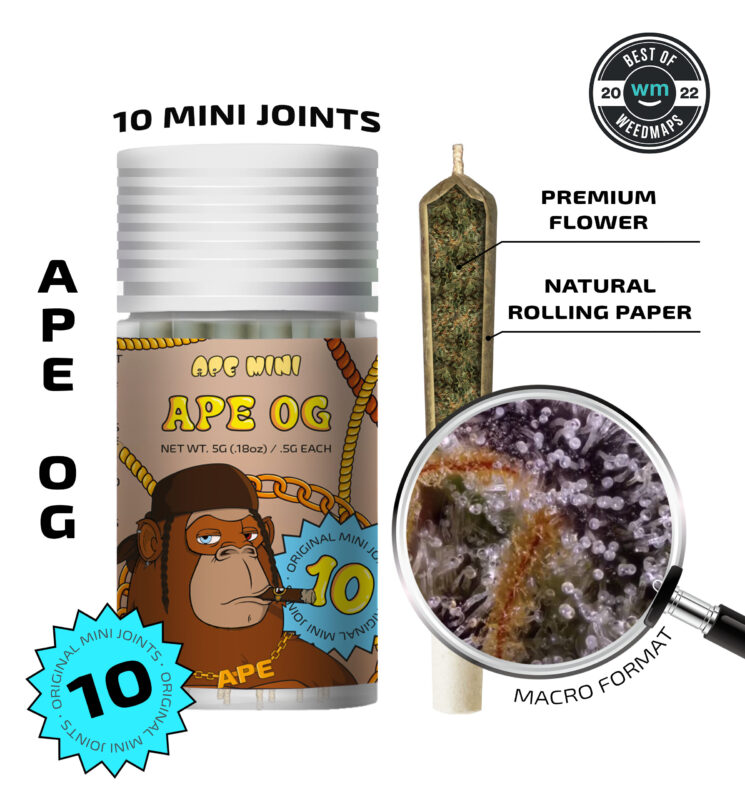How Do Cannabinoids Affect Appetite

How Do Cannabinoids Affect Appetite? Cannabis has long been celebrated for its wide array of effects, both recreational and medicinal. Among the most well-known of these is the effect of cannabinoids on appetite. Many cannabis users have experienced the infamous “munchies” at one time or another, but the way cannabinoids influence hunger is much more complex than just making people crave snacks. So, how exactly do cannabinoids affect appetite? And why does cannabis have such a strong influence on what and how much we eat?
Let’s take a deeper dive into this fascinating topic, exploring the science behind it and the specific roles played by compounds like THC and CBD.
1. THC: The Appetite Stimulator
What is THC?
Tetrahydrocannabinol (THC) is the main psychoactive ingredient in cannabis. It’s what causes that euphoric high many people seek when using cannabis, but its effects on appetite are what make it particularly interesting for medical use. When it comes to understanding how cannabinoids affect appetite, THC takes center stage.
How THC Triggers Hunger
THC works by binding to CB1 receptors in the brain, a key part of the endocannabinoid system (ECS). These receptors are responsible for regulating a wide range of functions in the body, including mood, memory, and yes, appetite. When THC activates these receptors, it boosts the production of ghrelin, a hormone known as the “hunger hormone.” This increase in ghrelin sends signals to the brain that it’s time to eat, leading to the classic sensation of hunger.
But it doesn’t stop there. THC also enhances the sensory experience of eating. Foods might taste better, textures become more appealing, and the act of eating itself is more enjoyable. In essence, THC not only makes you hungry but also turns eating into a more pleasurable experience, often leading people to indulge in larger quantities of food.

The “Munchies” Phenomenon
Anyone who’s ever enjoyed a joint or edible has likely heard the term “the munchies.” This is the sudden, almost uncontrollable craving for food that follows the consumption of cannabis. It’s a direct result of THC’s action on the brain and body. The hunger cravings can sometimes lead to overindulgence in calorie-rich snacks, making the munchies both a delight and a challenge for those trying to maintain a healthy diet.
Medical Benefits of THC for Appetite Stimulation
Beyond recreational use, THC has powerful medicinal applications, especially for those suffering from conditions that lead to significant weight loss, such as cancer or HIV/AIDS. Chemotherapy, for instance, often causes nausea and a loss of appetite, making it difficult for patients to maintain proper nutrition. By stimulating appetite, THC helps ensure these patients can maintain their caloric intake and avoid malnutrition.
2. CBD: The Appetite Regulator
What is CBD?
Unlike THC, cannabidiol (CBD) is non-psychoactive, meaning it doesn’t produce a high. But despite not causing euphoria or hunger stimulation like THC, CBD plays a unique role in appetite regulation. While many ask, “How do cannabinoids affect appetite?”, it’s important to note that CBD has a more subtle, but equally impactful effect.
How CBD Influences Appetite
CBD doesn’t stimulate hunger directly like THC. Instead, it works to modulate appetite in a different way. Some studies suggest that CBD can have a balancing effect, helping people avoid overeating or emotional eating, particularly in stressful situations. CBD interacts with the body’s serotonin receptors, which influence mood and appetite. By calming anxiety and improving mood, CBD may help reduce cravings linked to stress or emotional triggers, helping individuals develop healthier eating habits.

CBD and Stress-Eating
One of the most compelling ways CBD affects appetite is by reducing stress. Many people turn to food as a coping mechanism for stress, anxiety, or depression. This form of emotional eating can lead to weight gain and unhealthy eating patterns. By promoting a sense of calm, CBD may help alleviate the need to eat for comfort. For individuals struggling with stress-induced overeating, CBD could be a useful tool for regaining control over their appetite.
CBD’s Role in Weight Management
Interestingly, CBD may also play a role in weight management. Some research suggests that CBD could help with fat browning, a process in which white fat cells (which store energy) are converted into brown fat cells, which burn energy. While this doesn’t necessarily mean CBD causes weight loss, it does suggest that CBD might help regulate body fat and energy metabolism, which could help people maintain a healthier weight.
3. The Endocannabinoid System and Its Role in Appetite Regulation
The body’s endocannabinoid system (ECS) plays a central role in regulating a wide range of bodily functions, from mood to metabolism. The ECS helps maintain balance (or homeostasis) in the body, including regulating appetite.
CB1 Receptors and Appetite
The CB1 receptors in the brain are responsible for many of the effects cannabis has on appetite. When activated by THC, these receptors promote the release of hormones that signal hunger. But this system doesn’t just react to cannabis; it’s also active in regulating natural hunger cues. By understanding how cannabinoids affect appetite through the ECS, we can better appreciate how cannabis can influence food intake, both by stimulating it (via THC) and regulating it (via CBD).
4. Cannabinoids and Appetite in Specific Populations
Cannabis for Cancer Patients and Appetite Loss
For individuals undergoing cancer treatments like chemotherapy, loss of appetite is a common and debilitating symptom. The side effects of chemotherapy often include nausea and difficulty eating. This is where THC becomes invaluable. Its ability to stimulate appetite helps patients avoid malnutrition and maintain a healthy weight during treatment. For these patients, the question of “how do cannabinoids affect appetite?” is particularly relevant, as THC can provide life-changing benefits.
Appetite Stimulation in HIV/AIDS
Similar to cancer patients, individuals with HIV/AIDS often experience significant weight loss due to appetite suppression. This can result in wasting syndrome, a condition that leads to severe malnutrition. THC has proven effective in stimulating hunger in these individuals, helping them restore lost weight and improve their overall quality of life.

Cannabinoids for Managing Eating Disorders
For people with eating disorders like anorexia nervosa, where appetite suppression is a key issue, cannabinoids can offer relief. THC helps stimulate hunger, while CBD can ease anxiety that often exacerbates restrictive eating behaviors. Together, cannabinoids can help individuals struggling with eating disorders regain a healthier relationship with food.
5. Choosing the Right Strains for Appetite Stimulation
When it comes to using cannabis to stimulate appetite, selecting the right strain is crucial. Not all cannabis strains have the same effects, and understanding the difference between THC-rich strains and CBD-dominant strains can help users target their specific needs. Whether you’re looking to boost your appetite due to a medical condition or simply enjoy food more while relaxing, the strain you choose can play a significant role in how your body responds.
THC-Heavy Strains for Appetite Stimulation
For individuals who are looking for a strong appetite boost, strains that are rich in THC are usually the go-to choice. THC is the primary cannabinoid responsible for stimulating hunger, and its effects are often experienced as the infamous “munchies”. If you’re trying to combat appetite loss due to illness or medication side effects, THC-dominant strains may help you achieve your goal.
Here are some popular THC-heavy strains known for their appetite-stimulating effects:
- Purple Punch: With a THC content of around 20-25%, Purple Punch is an indica-dominant strain that provides relaxing body effects and a strong urge to snack. Known for its sweet, berry-like flavor, it’s often recommended for those who need a boost in appetite, especially after dealing with nausea or discomfort.
- Girl Scout Cookies (GSC): A hybrid strain known for its euphoric high and potent effects on appetite. With a THC content that can reach up to 28%, GSC is well-loved for its strong relaxing effects and ability to increase hunger. It’s often recommended for patients undergoing treatments like chemotherapy, where appetite loss is common.
- Gorilla Glue #4: This strain is famous for its high THC content (around 25-30%) and its relaxing yet uplifting effects. The combination of euphoria and body relaxation makes it great for stimulating appetite. The strong, earthy flavor profile of Gorilla Glue #4 adds to the overall experience, making meals and snacks more enjoyable.
- OG Kush: One of the most popular and well-known cannabis strains, OG Kush is known for its high THC content and strong effects. It’s often used by those seeking both pain relief and appetite stimulation. Its distinctive piney, earthy aroma and relaxing effects make it a favorite for recreational users looking to indulge in food during or after their cannabis experience.
CBD-Dominant Strains for Appetite Modulation
While THC is widely recognized for stimulating hunger, CBD doesn’t produce the same effects. However, CBD plays a different but equally important role in appetite regulation. Strains that are high in CBD can provide a more balanced approach, helping people manage their appetite by reducing stress or anxiety that may trigger emotional eating. CBD strains are ideal for people who don’t want to experience the euphoria and strong hunger effects of THC but still want a more moderate influence on appetite.
Here are a few CBD-heavy strains known for their appetite-modulating effects:
- ACDC: A high-CBD strain with low THC content, ACDC has a CBD-to-THC ratio of 20:1, which makes it an excellent option for those who want to reduce anxiety or stress without inducing a strong appetite increase. The subtle effects of ACDC help users maintain mental clarity while supporting a healthy relationship with food.
- Harlequin: This strain offers a balanced CBD-to-THC ratio (roughly 5:2) and is widely recommended for individuals who want to relieve pain and anxiety without getting overly hungry. It’s not likely to trigger the munchies, but its calming effects can help people stay grounded and focused, avoiding emotional eating triggers.
- Cannatonic: With a roughly 1:1 ratio of CBD to THC, Cannatonic offers the benefits of both cannabinoids. This strain is great for those who want moderate relief from stress or pain while still managing appetite without the intense cravings brought on by THC-heavy strains. It provides a gentle sense of relaxation without inducing a strong hunger response.

Choosing Strains Based on Personal Goals
The key to using cannabis for appetite stimulation (or regulation) lies in matching the right strain to your personal goals and needs:
- For Strong Appetite Boost: Choose THC-dominant strains such as GSC, Gorilla Glue #4, or Purple Punch. These will trigger a significant increase in hunger and enhance the sensory pleasure of eating.
- For Moderate Appetite Control: Opt for strains like Harlequin or Cannatonic, which offer a balance of both CBD and THC. These can help with mild hunger without excessive food cravings or loss of control.
- For Appetite Regulation with Reduced Stress: If emotional eating or stress-induced cravings are a concern, CBD-dominant strains like ACDC or Harlequin may help. These strains can provide relaxation and anxiety relief while keeping your appetite more stable.
Formulation of Edibles and Concentrates
If you prefer edibles or vape concentrates, choosing the right product can also play a role in appetite management. Many cannabis-infused edibles are designed to have either higher THC or CBD concentrations, which means you can tailor your experience. For those specifically looking to enhance appetite, edibles that are high in THC (like THC-infused gummies) can work wonders. Alternatively, CBD-infused products can help modulate appetite without overpowering hunger signals.
Cannabinoids, particularly THC and CBD, play a fascinating and complex role in regulating appetite. THC is well-known for its ability to stimulate hunger, making it useful in treating conditions that cause appetite loss, such as cancer or HIV/AIDS. CBD, on the other hand, takes a more subtle approach, helping to modulate appetite and reduce stress-induced overeating. By interacting with the body’s endocannabinoid system, these cannabinoids influence how we feel about food, whether by stimulating hunger or promoting a more balanced relationship with eating.
Whether you’re looking to boost your appetite or manage it, understanding how cannabinoids affect appetite can help guide you in making informed decisions about your cannabis use. Always consult with a healthcare professional, especially if you’re considering cannabis as a therapeutic tool for appetite-related issues.


























